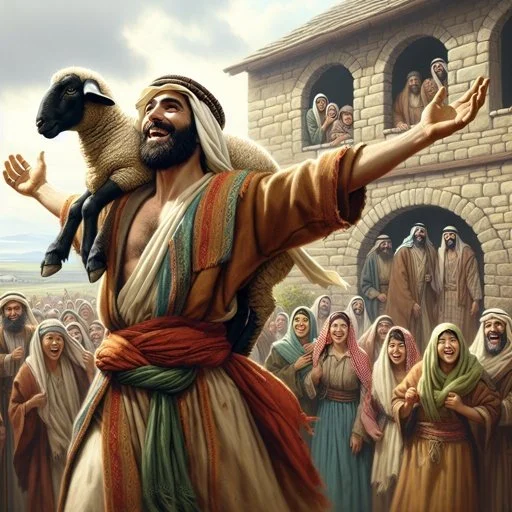Leaving the 99 and Seeking the One
Rev. Erik Swanson
September 14, 2025
You can watch the entire sermon here.
This week I was reminded of a powerful video where a teacher suddenly interrupted his lecture, singled out a young woman, and told her to leave his classroom. Shocked and confused, she asked why, but he cut her off, insisting she go. When she finally left, he turned to the remaining students and asked why no one spoke up. If they thought she was treated unfairly, they should have said something. His point was simple but profound: this is how injustice grows — through silence and complicity. That story struck me deeply because it connects not just with last week’s theme of speaking truth to power but also with today’s parable of the lost sheep. Too often, it’s easier to stay safe among the 99 than to risk ourselves for the one who is vulnerable, alone, or in need.
Jesus Calls Us to Seek Out the One
This all came to mind in light of the shocking and violent killing of Charlie Kirk. Violence must always be condemned — there is no justification. At the same time, I can acknowledge the truth that Kirk’s rhetoric was deeply divisive, rooted in white Christian nationalism rather than the teachings of Jesus. His words consistently demonized immigrants, LGBTQ+ people, people of color, and women. While some tried to recast him as peaceful and loving, I heard something very different: the same tired, harmful tropes with a younger face. And sadly, many bought into it. That’s why Jesus’ parable is so urgent today — it calls us to recognize who the one is in our time and to seek them out with care, not exclusion.
God’s Love is Especially for Them
Traditionally, we hear the parable as a picture of Jesus searching for the lost. But I believe it also calls us to embody that same love. It is not about forcing others to become like us or assuming the 99 are right while the one is wrong. Instead, it pushes us to ask: who is being excluded, marginalized, or silenced today? Who is at risk of being left behind? God’s love is especially for them, and our calling is to reflect that love.
Leaving Our Comfort Zones
That means leaving our comfort zones. Many in immigrant communities and LGBTQ+ communities live with fear — fear of rights being stripped away, of deportation, of being forced out. If we are to follow Christ, we cannot simply remain among the comfortable. We must go into the wilderness, sometimes dangerous or unfamiliar, to reach those who are hurting. And here’s the twist: if we feel too safe, too righteous, too secure in being part of the 99, perhaps we are actually the ones who have wandered off. Perhaps we are the lost, needing God to bring us back to the way of love and service.

